Review for Breaking Glass (Uncut British Edition)
British music movies are almost all, without exception, toe-curlingly bad affairs. In 1980, or thereabouts, we had the disappointing Clash movie ‘Rude Boy’, the criminally poor ‘The Great Rock ‘n Roll Swindle’ and the moderately poor ‘Quadrophenia’ which was only just passably better than the truly dire Ken Russell ‘Tommy’ travesty. In my opinion. In general, they were all under-funded, ill-conceived and realised to a large degree by people who should have stuck to music.
I remember going to the cinema to see ‘Breaking Glass’ on its original release (I was an ideal demographic then, a 19 year old raincoat wearing arts student) and my opinion of the film, seeing it again some thirty plus years later has changed very little. Overall it’s as dire a movie as all the above.
The acting is ‘children’s tv drama’ bad and the ‘career in 90 minutes’ plot difficult to swallow. But it’s also a film that, eventually, becomes more than the sum of these sorry parts. There is an early eighties grittiness that does somehow capture the zeitgeist of the moment. There is a portrayal of an over-fed, archaic music industry that is laugh aloud funny in its sardonic destruction. Then there are the songs – a curious rag-tag bag of the good, the bad and the ugly, all sung by the then unknown Hazel O’Connnor with her trademark ‘cold in the dose’ staccato. Oh – and then there’s Phil Daniels of course, doing the same Phil Daniels thing he does in Quadrophenia and everything else he puts his cheeky cockney twang to.
Of course the film was never cool. Or even close. Kids may have been taken in by its street-story but the great and the good lambasted it from the off. Everything was so ‘pat’. The skinhead movement was just a bunch of Nazi saluting racists (oh yes – they existed, but it’s still a gross stereotyping of a far more complex phenomenon) and the punkish ‘attitude’ of O’Connor’s character (we’re sticking it the man) is plain cliché.
Viewed thirty years on, it’s a historic curio and all the better for it. From a nostalgic point of view, glimpses of early eighties Soho are irresistible and there is something of ‘the early eighties in a bottle’ about the film when viewed today.
Kate (Hazel O'Connor) opens the film by posting stickers about her band all over the tube walls, walking from carriage to carriage to do so. (You can’t do that now … apparently the opening was inspired by O’Conner herself who did the self-same thing to promote her band prior to being cast in this role). She’s an anarchist, not looking for a deal and playing to audiences who hate her music.
A plugger, Danny (Phil Daniels) gets thrown out of a record company party he’s gate crashed and sees O’Connor putting up posters under the rail arches. He gets in conversation with her and says he’ll give her a call.
What follows is their story as Danny pushes and fights to make her a success – until a divisive record company executive tears them apart, leaving a by now drug addled O’Connor to completely ‘sell out’.
On the way we see auditions for her new band, including the aging drug addict saxophonist Ken (Jonathan Pryce); guitarist and bassist Tony and Dave (Mark Wingett and Gary Tibbs) and drummer Mick (Peter-Hugo Daly, last seen in ‘Gregory’s Girl’).
Their success slowly grow and they start to tour and eventually Danny extorts a record executive to release material (threatening to blow the whistle on his chart rigging). Soon they are in the studio and for me, we get to the funniest part of the film where an executive tries to persuade them to change a lyric from ‘kick them up the arse’ to ‘punch them on the nose’. It’s a nicety that this song is played subtly in the background of a much later scene to show the extent of Kate’s sell out when we hear a version with the ‘punch him in the nose line’ which, earlier, had the band in hysterics.
They play a rally in London and Kate leads the band’s float directly in to a throng of approaching young Nazis and witnesses a lethal stabbing, which leaves her in a poor mental state. Which is when the record company execs start feeding her ‘prescribed drugs’ to keep her performing / earning. Yes – that old cliché I’m afraid.
The band falls apart and Kate, now at the height of her frame suffers a final breakdown after a Metropolis looking rendition of ‘Eighth Day’, by far the best song in the film and its unarguable highlight.
It’s notable that there is always a whiff of Bowie in the air (not least the film’s title) and this may be no coincidence as O’Connor was a huge fan. Add to this the fact that Tony Visconti produced the music and the similarities are totally understandable. It’s strange that Bowie held such power over the post-punk scene, directly influencing the automaton industrial sound emerging from Sheffield which had such an impact on the era. Other tracks which might ring a bell, and which spawned a string of related chart hits included ‘Will you?’, ‘Give Me an Inch’ and ‘Writing on the Wall’.
The transfer is good with very little evident wear and tear and audio quality perfectly acceptable. This particular edition of the film comes with some really great extras. The postcards of the original poster artwork are really first class, featuring promotional posters for the film from the UK, Hungary, France and Germany.
There’s also a nicely printed 28 page illustrated booklet featuring viewing notes and rare stills, written by film historian Marcus Hearn and a 20 page reproduction of the film’s original press pack.
Perhaps the most intriguing extra is the lengthy interview with Hazel O’Conner herself, now a mumsy-looking middle-aged lady (and why not?) full of the personality, zest and energy that got her recognised in the first place. Curiously, despite great detail about the history and mechanics of making the film and its associated soundtrack, we don’t hear any assessment of her opinions of the work when re-viewed years later. I half-expected her to say something along the lines of ‘it’s a bit cringey now but it was of its time and I’m still rather fond of it’. But she doesn’t.
All in all, a beautifully presented edition which will please both hard-core fans, the merely nostalgic and the curious.
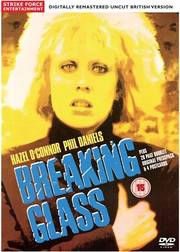
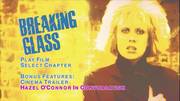













































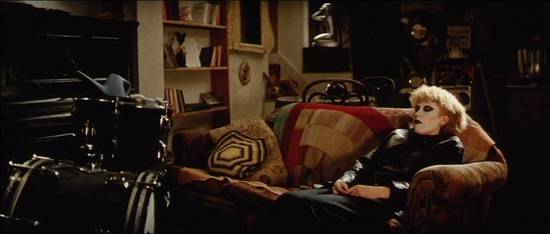
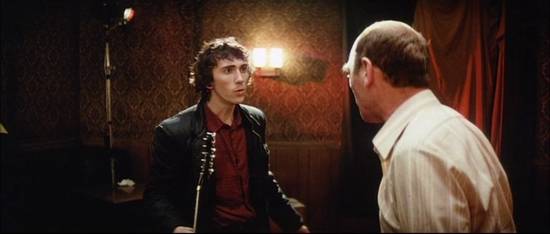
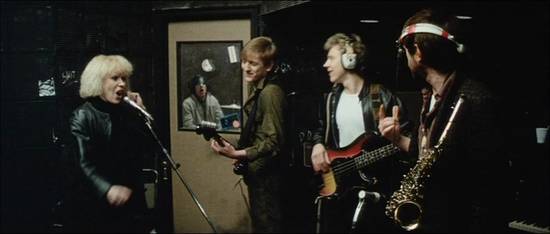
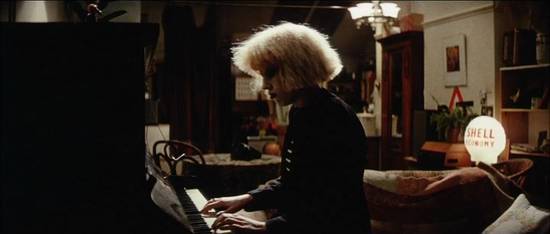
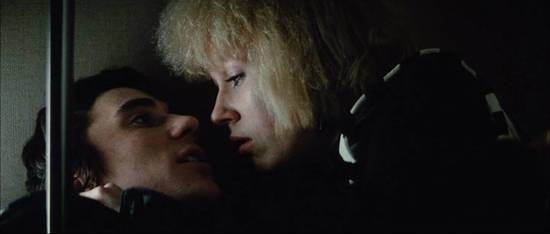
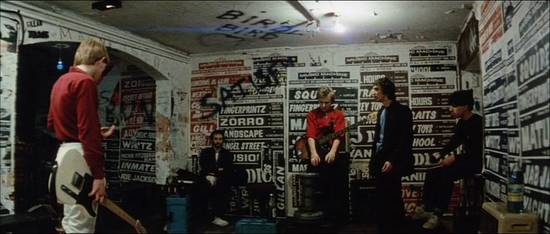
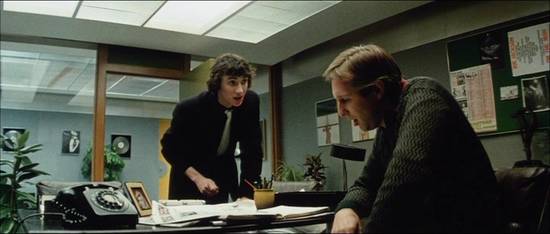
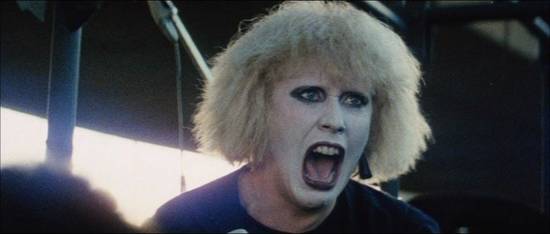
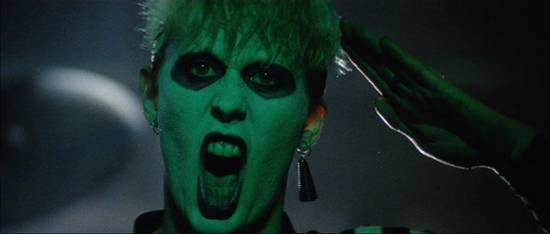
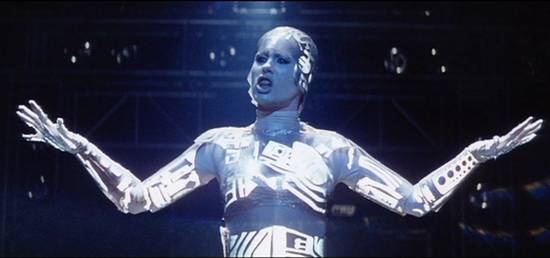
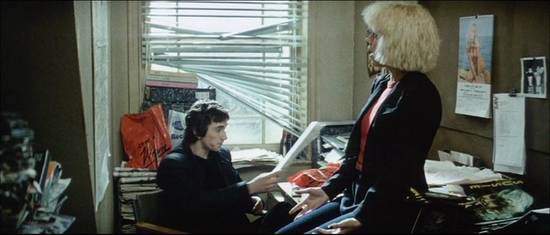

Your Opinions and Comments
Be the first to post a comment!